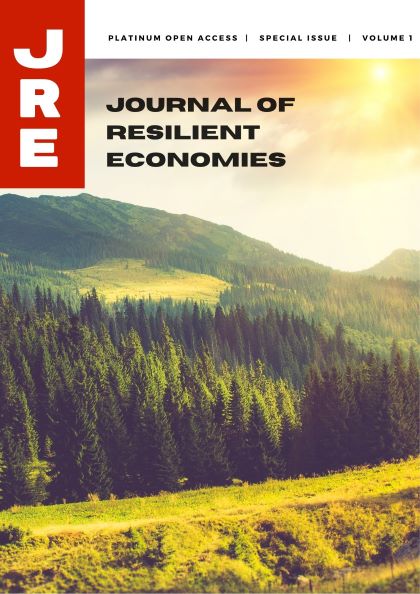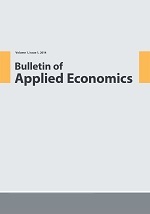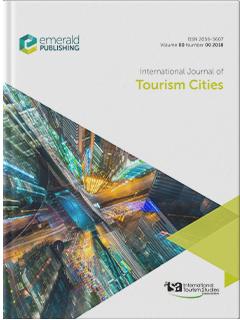CITBA's International Conference 2022
International Conference on Business, Economics, Management, and Sustainability (BEMAS)
1-3 July 2022
Proudly hosted by the Centre for International Trade and Business in Asia (CITBA), and the College of Business, Law, and Governance (CBLG), James Cook University - Australia.
See the conference flyer here.
To access the full program click here
Inquiries to A/Prof Taha Chaiechi, the General Chair for BEMAS: taha.chaiechi@jcu.edu.au
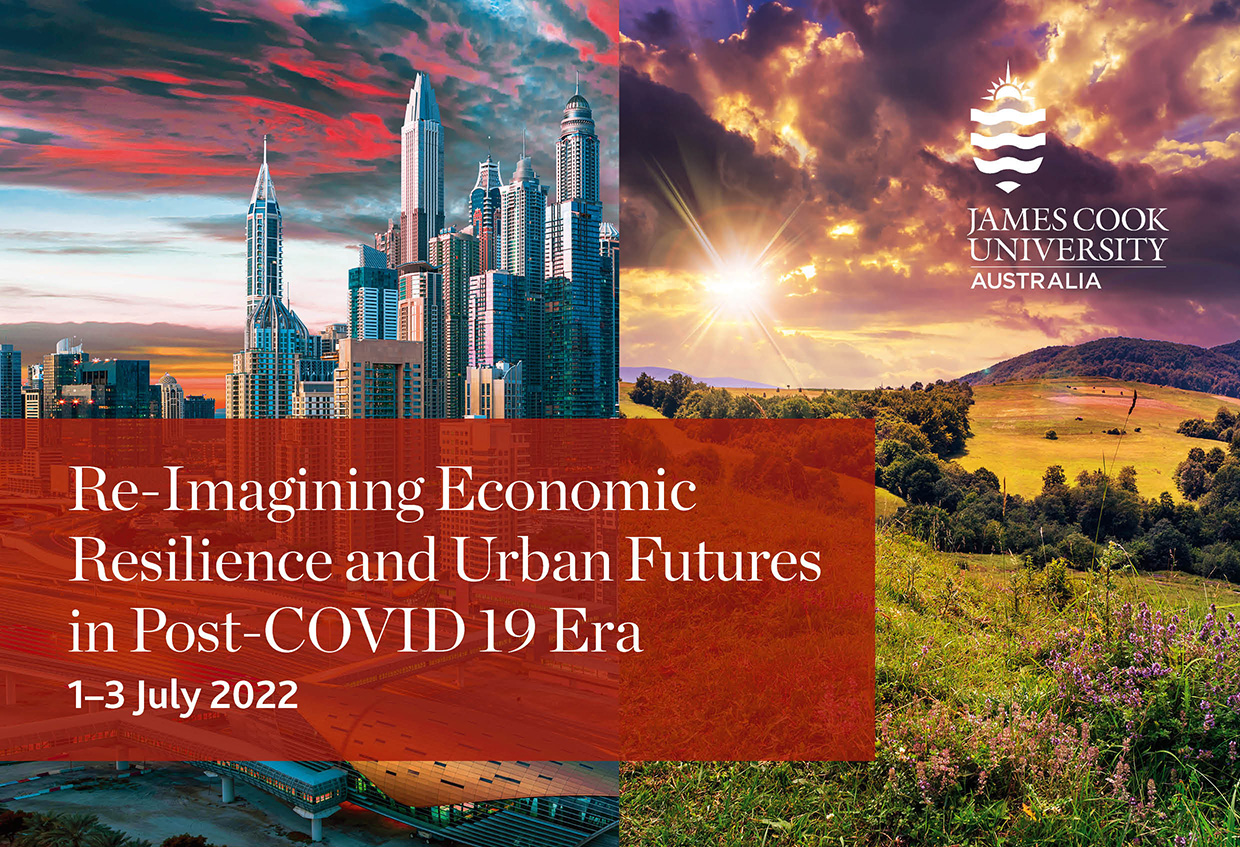
See the Conference Program here
Campus map/ Conference venue
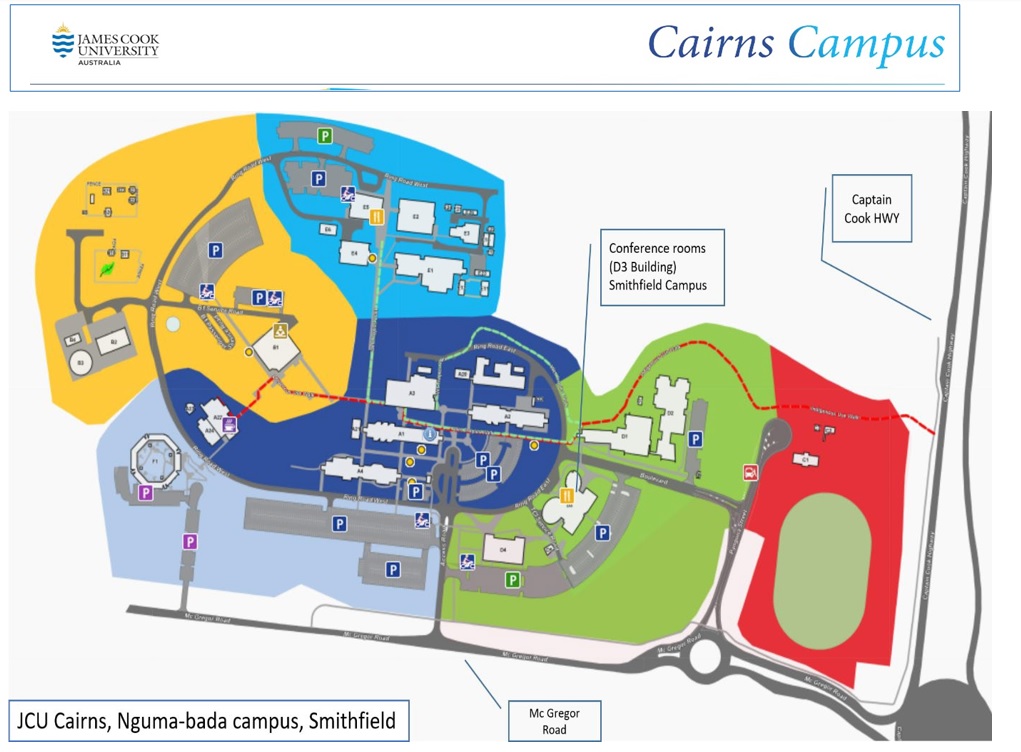
Post-conference Survey
Our Post-conference survey is designed to collect feedback from our sponsors, delegates, presenters and attendees about their conference experience. This survey includes 10 quick questions a combination of multiple-choice and open-ended questions. to access the survey, please scan the following QR Code.
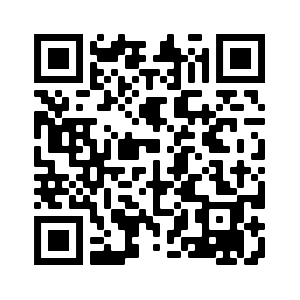
Conference Information
As the COVID-19 pandemic evolves around the globe, with travel restrictions in place, we have opted for a hybrid conference that would allow for in person and remote participation particularly for international delegates. In order to offer participants a more flexible way to experience the conference at their own pace and timeline; presentations will be either in the form of live streams or pre-recorded video presentations. Background reading materials such as full papers, posters, and source files will be also provided to participants
Participants who can travel to Cairns will be able to attend the sessions in person. Physical function rooms will be booked for the event and catering will be provided.
Population movements into cities have accelerated over the past few decades, with more than half of the world's population now living in urban areas. The urban population has grown from 751 million in 1950 to 4.2 billion in 2018 (United Nations, 2018). North America is the most urbanised region in the world with 82% of its population living in urban areas, Latin America and the Caribbean comes in second place with 81%, Europe and Oceania follow suit with 74%, and 68% in that order. The more balanced regions include Asia, with almost 50% urbanisation and Africa, with 43% of its population living in urban areas (United Nations, 2018). This rapid urbanisation places an enormous demand on infrastructure, service sectors, and natural environments, including land. Furthermore, the new millennium has witnessed widespread and frequent external shocks (including but not limited to financial shocks, unsustainable growth, and public health emergencies) resulting in massive economic losses, depressions, and loss of lives (Chaiechi, 2020a). Simultaneously, the orthodox methods of addressing external risks are no longer adequate , as they fail to account for evolving industries’ composition, adaptive and inherent resilience, and new comparative advantages and skills (Chaiechi, 2021b).
This ongoing urbanisation and increasing intensity and frequency of external shocks show the importance of building resilient economies capable of dealing with complex external financial and public health shocks and disturbances, and while most growing cities are beginning to demonstrate dedication to integrating sustainable development goals (Chaiechi, 2021a), building urban economic resilience remains a significant challenge.
Accordingly, the theme and tracks of BEMAS 2022 are:
Theme:
Re-imagining Economic Resilience and Urban Futures in the Post-COVID 19 Era
Tracks:
- Urban Mobility and Health Economic Benefits
- Entrepreneurship, Knowledge Economy & Resilience
- Intra and Peri-Urban Agriculture & Food Security
- Resilience and Recovery Strategies for Urban Tourism
- Digital Transformation & Re-shaping Urban Futures
- The Digital Economy: Opportunities and Threats
- New Frontiers in Interactive Marketing
- Sustainable Management: the Role of University-Industry Cooperation
- Management for Sustainable and Resilient Urban Futures

References:
Chaiechi, T. (2020). Sustainable Tropical Cities: A Scoping Review of Multidisciplinary Methods for Urban Planning. ETropic: Electronic Journal of Studies in the Tropics, 19(2), 25–51. https://doi.org/10.25120/etropic.19.2.2020.3743
Chaiechi T and Nguyen T (2021a). Measuring urban economic resilience of two tropical cities, using impulse response analysis. Bulletin of Applied Economics, 8 (1), pp. 59-79, doi: https://doi.org/10.47260/bae/814
Chaiechi, T. (2021b). Foreword- Sustainable and resilient economies, theoretical considerations. T. Chaiechi and Wood J(eds.), Community Empowerment, Sustainable Cities, and Transformative Economies, Springer, Singapore (in press)
United Nations (2018a). Department of Economic and Social Affairs, Population Division Revision of world urbanisation prospects 2018. https://population.un.org/wup/
United Nations (2018b). World Urbanization Prospects: The 2018 Revision. https://population.un.org/wup/Publications/Files/WUP2018-KeyFacts.pdf
- When: 1-3 July 2022
- Where: Cairns, Queensland, Australia Plus Online
- Abstract submission opens: 1 October 2020
- Abstract submission deadline: 20 December 2021
- Notification on abstracts: 10 Jan 2022
- Full paper submission: 24 March 2022
- Review Process: 24 March - 24 April 2022
- Notification of Acceptance: 25 April 2022
- Final papers due: 31 May 2022
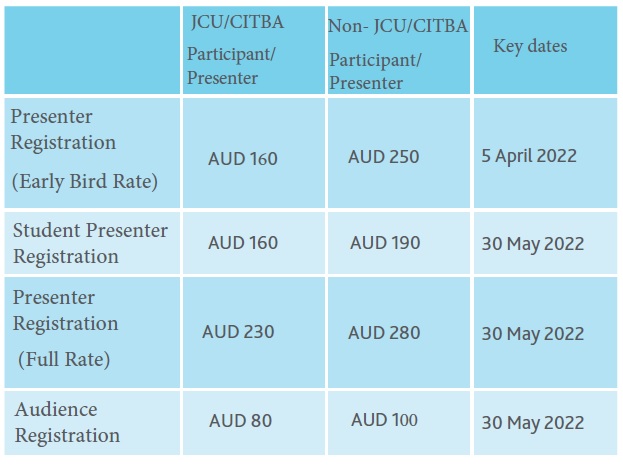
Please note that the Early Bird Registration fee Expires on 5 April 2022, after which the Full Registration fee will come into effect.
Conference Proceeding and Publication Opportunities
Upon successfully completing the double-blind peer-review process, accepted papers will have the opportunity to be published in one of the associated journals (based on suitability and scope) or will appear on in the conference proceeding. More information about the conference proceeding will be announced in due course.
Note: Additional journal s may be associated with the conference in due course. We encourage you to bookmark this page on your browser to avoid missing out on an update.
Current Journals:
Journal of Resilient Economies (JRE)
(published by James Cook University, Platinum Open Access, Creative Commons Attribution-NonCommercial 4.0 International License)
Bulletin of Applied Economics (BAE)
(Australian Business Deans Council (ABDC) Journal Quality List , Indexed by EconLit, IDEAS and EconPapers- Open Access), American Economic Association’s Electronic Bibliography - Econlit, * European Reference Index for Humanities and the Social Sciences - ERIH PLUS, * Google Scholar, * Leibniz Information Centre for Economics - ECONIS (ZBW), * ProQuest ( ABI/INFORM Collection , ABI/INFORM Global , Business Premium Collection , ProQuest Central ),
International Journal of Tourism Cities (IJTC)
(Abstracted and Indexed: Cabells, Emerging Sources Citation Index (Clarivate Analytics), Ranked: Australian Business Deans Council (ABDC) Journal Quality List)
Industry and Higher Education (SAGE Journal)
(Indexed in Scopus, ECSI indexed by Clarivate Analytics)
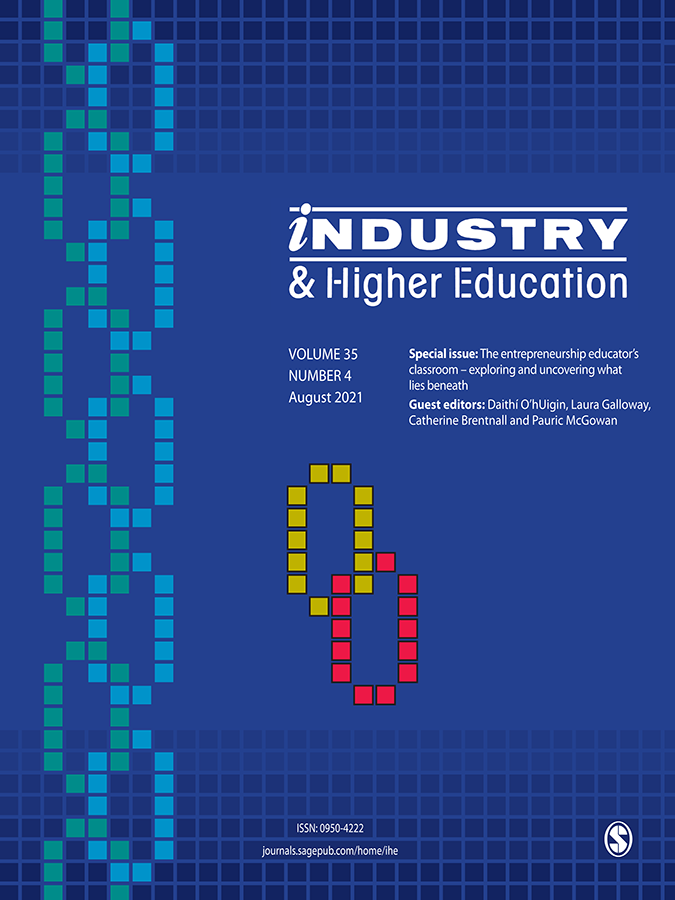
Journal of Public Space (JPS)
(Partner with UN-Habitat, Open Access, Creative Commons Attribution-NonCommercial 4.0 International License)
Journal of Research in Interactive Marketing
(Cabell's Directory of Publishing Opportunities in Management and Marketing; Electronic Collections Online; Inspec; ReadCube Discover; Social Sciences Citation Index SSCI (Clarivate Analytics); ProQuest; Zetoc (British Library); Community Information; AIDEA (Italy); Australian Business Deans Council (ABDC) Journal Quality List - B ranking)
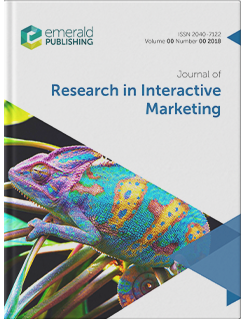
This registration agreement shall be governed by and construed in accordance with the Australian law. You are deemed to have accepted these terms and conditions when you proceed with the registration process. CITBA maintains the right to remove, add or modify the Terms and Conditions as set out with or without notice.
Clarification of these terms or any concerns may be addressed to CITBA at citba@jcu.edu.au or by mail:
James Cook University
College of Business, Law and Governance
Building A1
1/14-88 McGregor Rd
Smithfield QLD 4878
Review Process
BEMAS Organising Committee and its associated journals require that all submitted conference papers go through a blind peer-review process and evaluation based on originality, research depth and quality, and relevance to the theme of the conference (Re-imagining Economic Resilience and Urban Futures in Post-COVID19 Era) and its associated tracks listed in this call.
We invite full research papers, practitioner papers, research notes, scoping/systematic literature review papers, and case studies. Papers that are accepted following the peer review process, and are presented in the conference will have an opportunity to be published in one of the associated journals (subjected to successful peer review process usually handled by the journals) or will appear in the conference proceeding.
Preparation of your Manuscripts
- Names and institutional affiliations – including country – and addresses of all
contributing authors are required. - One author must be designated as the corresponding author.
- All full papers must include an abstract of max 250 words and up to six keywords
- Ensure the manuscript is spell checked and grammar checked before submission
- Ensure all references mentioned in the Reference List are cited in the text, and vice versa
- For all images and graphs, ensure appropriate permissions are obtained from the source
- For title, abstract, and the body of the paper, the language must be clear and comprehensible to the global audience
- Content of the manuscript must be consistent with the scope of BEMAS 2022
- Papers must adhere to APA referencing style
Ethical Requirements: Responsible Conduct of Research and Ethics
Authors are expected to uphold the general principles of responsible research conduct in all aspects of their research; this means fostering and maintaining a research environment of intellectual honesty, integrity, scholarly and scientific rigors.
Please see our information pages on Responsible Conduct of Research and Authorship Procedure.
Acknowledgement and Funding
The involvement of anyone who does not meet the authorship criteria but assisted with the preparation of the manuscript content should be acknowledged. All sources of funding, the role of the funding body should be declared.
Declaration of Interest
All authors must disclose any financial and personal relationships with other people or organisations that could inappropriately influence (bias) their work.
ORCiD ID
We encourage authors to supply ORCiD IDs during manuscript submission.
Presentation format
Presentations are either live stream or pre-recorded video presentations. Please note that pre-recorded presentations are to be created by the authors. Further information on creating the video will be sent following registration. The length of the live stream or pre-recorded presentations should not be longer than 25 minutes.
Presentation Guidelines
You are required to prepare PowerPoint slides (or PDF) to support your presentation. To facilitate a smooth transition between speakers, you will need to load your presentation onto the computer before your stream. Please make sure you email a copy of your slides to the session chair at least 48 hours prior to the conference. If you attend the conference in person, please make sure you also bring your presentation on a data stick or other portable memory devices. You will not generally be able to plug your own laptop into the conference projection system.
If you require special technology for your presentation, please email our conference coordinator Ms Dwi Sugiharti (Dwi.sugiharti@my.jcu.edu.au), as soon as you can, and we will do our best to assist you.
All sessions will be recorded
Guidelines for Academic and PhD Presentations
The time allocated for a presentation is 20 minutes, with a further 5 minutes allowed for Q&A and discussion. Most presentations are organised according to a predictable pattern. They have three main stages: introduction, body and conclusion. The followings provide some general structure to assist you in preparing your presentation:
- A title slide – Title of your paper, authors names and affiliations
- A background slide where you set the scene of your research for the audience and provide the importance of your research
- One slide with the hypothesis/research question you want to investigate (if your paper is a review paper, you need to express that clearly)
- 2 or 3 slides covering your research design and methods
- You should not require any more than an absolute maximum of 15 slides (including the title slide and thank you slide)– this would mean talking to each slide for about 90 seconds on average
- It is generally distracting to the audience to have too many slides in a short presentation
- Do not make your slides too wordy– you want the audience to listen to you and not to be reading your slides!
- Fonts: Widely used fonts such as Arial, Calibri or Helvetica is recommended for clarity and compatibility. Confirm a font size of at least 24 points for body text and 36 to 40 points for headings. Light-coloured text on a dark background is advised, or dark-coloured text on a light background is fine. Avoid using red or green ink font. The maximum number of lines in text slides is no more than 6 or 7.
Remote Presentation: Opening and closing remarks
It is important to add an introduction and closing to your presentation. Below are a few suggestions you can utilise.
INTRODUCTION: you can start your presentation by introducing yourself and your affiliation:
- Hello everyone, my name is < your name>, and I am < your position such as lecture, PhD candidate, professor, etc.> at <your affiliation and your Country>. The topic of my presentation is < your topic>. If you have any questions or comments during the course of the presentation, please feel free to type them in the CHAT window.
CLOSING: So that concludes my presentation for today, Thank you for listening and I would be happy to take a few questions now.
Remote presentations: Technicalities
If you are presenting remotely (virtually), here are some hints and tips to ensure you run a successful presentation:
- Test your Zoom connection ahead of time, especially your audio and video
- It is highly recommended that you use a USB microphone (rather than inbuilt microphones) for audio clarity
- Ensure your microphone, headphone, or speakerphone is near you.
- Mute your Zoom session or phone when not in use.
- Avoid bright lights and windows behind you.
- Good light in front of you (on your face) will provide for a better image.
- Test any virtual backgrounds that you may be utilising to ensure there are no video irregularities.
- Webcam: Cameras should be placed at face level, ideally 70cm away from your seated film position
- Set up your space in a quiet area
Zoom
Once the participants receive their Zoom invitations, we recommend they test their Zoom connections by going to https://zoom.us/test where they can test their video and audio to make sure they can both hear and see a Zoom test meeting.
Should there be difficulties with the connection we recommend the following:
Use a network cable to connect to the Internet not wireless as wireless can be affected by other devices particularly those in a home environment.
If the connection is still unsatisfactory with the image breaking up in pixels, it is advisable to turn the video camera off, the video camera uses up most of the total bandwidth requirements.
If there are still problems with running audio-only or audio and screen sharing, connect from another location.
On the actual day, each participant will click on the click contained in the invitation to join the Zoom event.
Here is a Zoom support article about Getting Started with Zoom
The Organising Committee
General Chair:
A/Prof Taha Chaiechi, For all general inquiries please email: taha.chaiechi@jcu.edu.au
The Scientific Council :
Professor Alberto Posso, RMIT University, Australia
Professor Jonathan Paquette, Université du Québec en Outaouais, Canada
Professor Alastair Morrison,University of Greenwich, Greenwich Business School, United Kingdom
Professor Andres Coca Stefaniak,University of Greenwich, Greenwich Business School, United Kingdom
Professor Peter Case, James Cook University, Australia and Bristol Business School, United Kingdom
Professor Stephanos Papadamou, University of Thessaly, Greece
Professor Catur Sugiyanto, Universitas Gadjah Mada, Indonesia
A/Professor Carmen Reaiche, James Cook University, Australia
A/Professor Josephine Pryce, James Cook University, Australia
A/Professor Graciela Corral de Zubielqui, The University of Adelaide, Australia
A/Professor Jacob Wood, James Cook University, Singapore
Dr Simona Azzali, Prince Sultan University, Saudi Arabia
Dr Breda McCarthy, James Cook University, Australia
Dr Alexandros Koulis, Ionian University, Greece
Dr Luisa Bravo, City Space Architecture, Italy
Ms Dwi Sugiharti, email: dwi.sugiharti@my.jcu.edu.au
Ms Diana Castorina , email: diana.castorina@jcu.edu.au
Ms. Fiona Whittenbury, James Cook University, Australia
Ms. Kym Davis, College of Business, Law, and Governance, James Cook University, Australia
TBC
